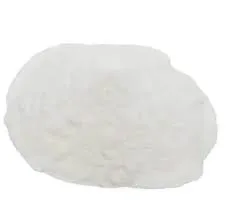
Dec . 10, 2024 22:18 Back to list
Is HPMC Soluble in Water and What Are Its Properties and Applications
Is HPMC Water Soluble? Exploring Hydroxypropyl Methylcellulose
Hydroxypropyl methylcellulose (HPMC) is a cellulose derivative that has garnered significant attention across various industries, including pharmaceuticals, food, and construction. One of the key properties that defines its utility is its solubility in water. In this article, we will explore the characteristics of HPMC, its water solubility, and its implications in different applications.
Understanding HPMC
HPMC is a non-ionic polymer derived from cellulose, a naturally occurring polymer found in the cell walls of plants. The modification process involves the introduction of hydroxypropyl and methoxy groups, which enhance its solubility in organic solvents and water. This makes HPMC a versatile compound widely used in various formulations.
Water Solubility of HPMC
To answer the question directly Yes, HPMC is water-soluble. However, its solubility is influenced by multiple factors, including its molecular weight and the degree of substitution of the hydroxypropyl and methoxy groups. Generally, HPMC exhibits good solubility in hot water, forming a viscous gel-like solution when dissolved, which can be adjusted according to concentration and temperature.
The degree of substitution is crucial because it defines how many hydroxyl (OH) groups on the cellulose backbone are replaced with hydroxypropyl and methoxy groups. A higher degree of substitution generally leads to increased water solubility, making HPMC effective in various applications where moisture and viscosity control are essential.
is hpmc water soluble

Industrial Applications of HPMC
1. Pharmaceuticals In the pharmaceutical industry, HPMC is widely used as a film-forming agent in drug formulations. Its water solubility allows for the creation of controlled-release tablets, where the active pharmaceutical ingredients can be released over time. Additionally, HPMC is utilized in ointments and creams for its thickening properties, enhancing the texture and stability of topical formulations.
2. Food Industry In food products, HPMC acts as a thickener, stabilizer, and emulsifier. Its water solubility enables it to be easily incorporated into various food formulations, helping to improve texture and mouthfeel. HPMC is often found in gluten-free products, where it plays a crucial role in providing the structure and moisture retention that gluten typically contributes.
3. Construction In the construction industry, HPMC serves as a crucial additive in cement-based materials, tiles, and plasters. Its water-retention properties contribute to the workability of mixtures, allowing for better adhesion and reducing the likelihood of cracking during the drying process. The ability of HPMC to retain water while remaining soluble ensures that the material maintains its desired properties over time.
4. Cosmetics HPMC is also extensively used in the cosmetic industry for its film-forming, thickening, and stabilizing properties. In various personal care products, its water solubility allows for easy dispersion and uniformity, promoting a desirable texture in creams, lotions, and gels.
Conclusion
In summary, HPMC is indeed water-soluble, and this characteristic significantly expands its utility across various sectors. From pharmaceuticals to food and construction, HPMC's ability to dissolve in water and form viscous solutions makes it a valuable ingredient in many formulations. As industries continue to innovate, the demand for versatile compounds like HPMC is likely to grow, making its understanding and application essential for future developments. Whether you're formulating a new drug, developing a food product, or working on a construction project, the knowledge of HPMC's properties will undoubtedly enhance your approach to product design and formulation.
-
Versatile Hpmc Uses in Different Industries
NewsJun.19,2025
-
Redispersible Powder's Role in Enhancing Durability of Construction Products
NewsJun.19,2025
-
Hydroxyethyl Cellulose Applications Driving Green Industrial Processes
NewsJun.19,2025
-
Exploring Different Redispersible Polymer Powder
NewsJun.19,2025
-
Choosing the Right Mortar Bonding Agent
NewsJun.19,2025
-
Applications and Significance of China Hpmc in Modern Industries
NewsJun.19,2025







